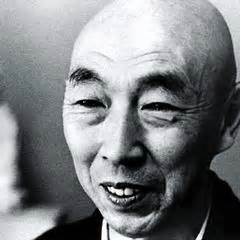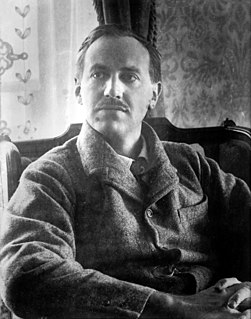A Quote by Ernest Hemingway
Part of you died each year when the leaves fell from the trees and their branches were bare against the wind and the cold, wintry light.
Related Quotes
You expected to be sad in the fall. Part of you died each year when the leaves fell from the trees and their branches were bare against the wind and the cold, wintery light. But you knew there would always be the spring, as you knew the river would flow again after it was frozen. When the cold rains kept on and killed the spring, it was as though a young person died for no reason.
Not only is the day waning, but the year. The low sun is fiery and yet cold behind the monastery ruin, and the Virginia creeper on the Cathedral wall has showered half its deep-red leaves down on the pavement. There has been rain this afternoon, and a wintry shudder goes among the little pools on the cracked, uneven flag-stones, and through the giant elm-trees as they shed a gust of tears.
One must have a mind of winter to regard the frost and the boughs of the pine trees, crusted with snow, And have been cold a long time, to behold the junipers, shagged with ice, the spruces, rough in the distant glitter of the January sun, and not to think of any misery in the sound of the wind, in the sound of a few leaves, which is the sound of the land, full of the same wind, blowing in the same bare place for the listener, who listens in the snow, and, nothing herself, beholds nothing that is not there, and the nothing that is.
You know the Zen question, 'The Bodhisattva of Great Mercy' has a thousand hands and a thousand eyes; 'which is the true eye?' I could not understand this for a long time. But the other day, when I looked at the pine trees bending before the cold blasts from the mountain, I suddenly realized the meaning. You see, all the boughs, branches, twigs, and leaves simultaneously bend to the wind with tremendous vigor.
The morning woods were utterly new. A strong yellow light pooled beneath the trees; my shadow appeared and vanished on the path, since a third of the trees I walked under were still bare, a third spread a luminous haze wherever they grew, and another third blocked the sun with new, whole leaves. The snakes were out - I saw a bright, smashed one on the path - and the butterflies were vaulting and furling about; the phlox was at its peak, and even the evergreens looked greener, newly created and washed.
Each solstice is a domain of experience unto itself. At the Summer Solstice, all is green and growing, potential coming into being, the miracle of manifestation painted large on the canvas of awareness. At the Winter Solstice, the wind is cold, trees are bare and all lies in stillness beneath blankets of snow.
And at that moment a wind came out of the northwest, and entered the woods and bared the golden branches, and danced over the downs, and led a company of scarlet and golden leaves, that had dreaded this day but danced now it had come; and away with a riot of dancing and glory of colour, high in the light of the sun that had set from the sight of the fields, went wind and leaves together.
Variations: II Green light, from the moon, Pours over the dark blue trees, Green light from the autumn moon Pours on the grass ... Green light falls on the goblin fountain Where hesitant lovers meet and pass. They laugh in the moonlight, touching hands, They move like leaves on the wind ... I remember an autumn night like this, And not so long ago, When other lovers were blown like leaves, Before the coming of snow.
So rests the sky against the earth. The dark still tarn in the lap of the forest. As a husband embraces his wife's body in faithful tenderness, so the bare ground and trees are embraced by the still, high, light of the morning. I feel an ache of longing to share in this embrace, to be united and absorbed. A longing like carnal desire, but directed towards earth, water, sky, and returned by the whispers of the trees, the fragrance of the soil, the caresses of the wind, the embrace of water and light. Content? No, no, no - but refreshed, rested - while waiting.
You were dead, you were sleeping the big sleep, you were not bothered by things like that, oil and water were the same as wind and air to you. You just slept the big sleep, not caring about the nastiness of how you died or where you fell. Me, I was part of the nastiness now. Far more a part of it than Rusty Regan was.




































